La riflessione di BRIDGES si basa su un ampio ventaglio di letterature provenienti da diversi ambiti disciplinari. Offriamo di seguito un percorso di lettura e formazione: sulla sinistra l’elenco è stato organizzato secondo un topic clustering, esplicato da un breve abstract.
(e sull'approccio di BRIDGES)
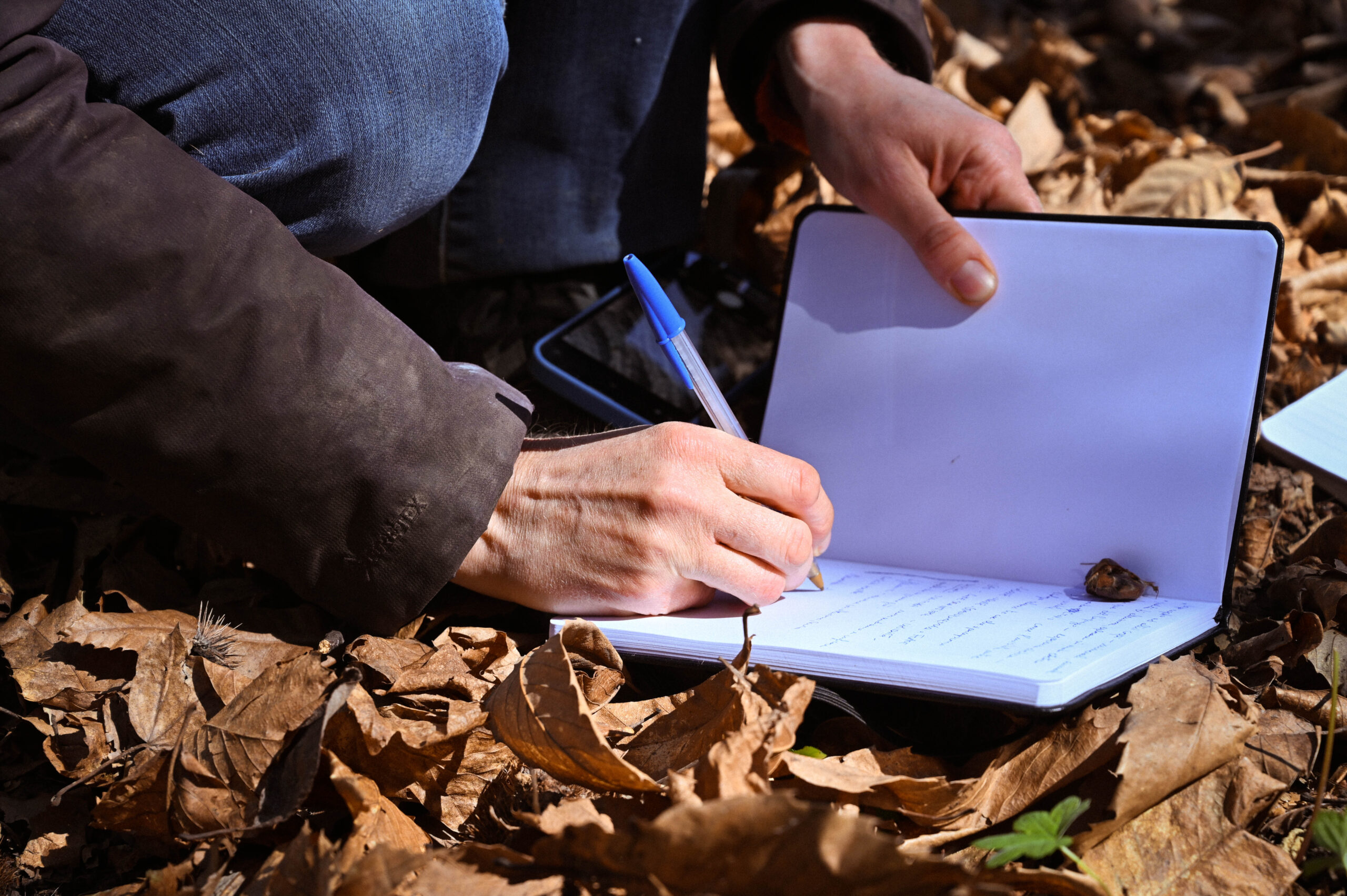
Un particolare tratto dall’esperienza di autoformazione del gruppo di ricerca BRIDGES, esperito a Pianpicollo in aprile 2022 (foto di Samuele Giatti)
Studi di scienze sociali, dal respiro multidisciplinare, che mirano ad indagare le scienze, le tecnologie, la medicina ed altre pratiche conoscitive come attività umane sociali e materiali.
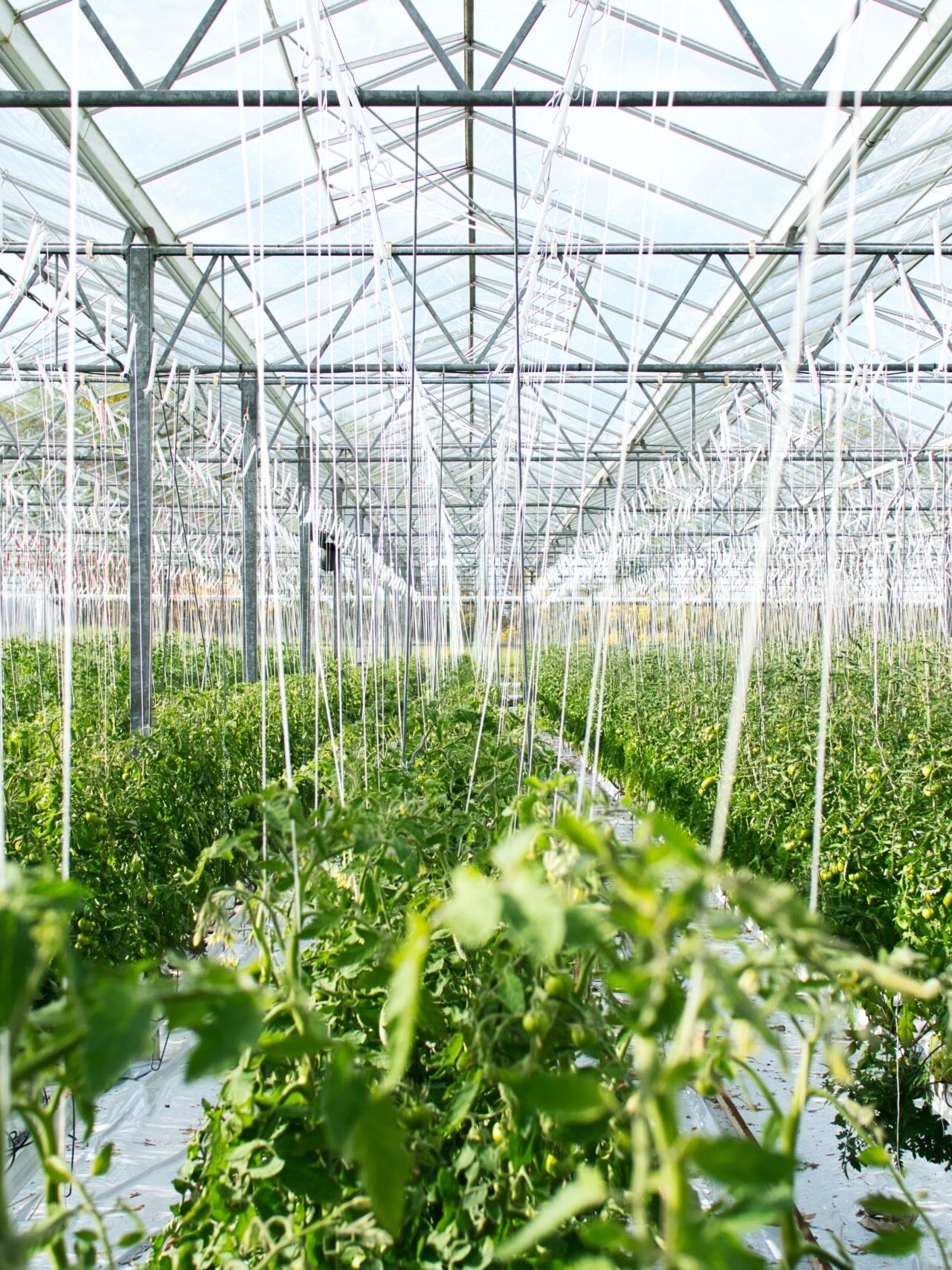 Sotto la categoria “Science Studies” si annoverano comunemente i lavori provenienti dalle scienze sociali, ma dal respiro multidisciplinare, che mirano ad indagare le scienze, le tecnologie, la medicina ed altre pratiche conoscitive come attività umane sociali e materiali.
In questa sezione (certamente parziale) annoveriamo alcuni lavori esemplari di questo genere, che hanno portato negli anni i ricercatori sociali a studiare attraverso differenti frame teorici e metodologici come le diverse discipline scientifiche, pratiche di laboratorio e di ricerca producano differenti fatti (come Latour 1983, 1986; Koheler 2002), come esse producano ed agiscano all’interno di diversi spazi di conoscenza (Knorr-Cetina 2003) e di ignoranza (Böshen et al. 2006, Gross 2015, Fernández Pinto 2017).
Abbiamo qui elencati anche lavori che si sono interrogati su come le conoscenze scientifiche oltrepassino le pareti dei laboratori e come gli scienziati, chiamati a rispondere ad un problema tecnico pertenente alla sfera politica si facessero “esperti”, trovando così una validità e giustificazione delle conoscenze da loro prodotte all’interno della sfera pubblica (come Collins & Evans 2002, 2009, 2015, 2016; Turner 2014) e decisionale propria delle società democratiche (Nader 1996, Jasanoff 2007). Una democrazia che però si compie pienamente solo attraverso un contributo attivo delle conoscenze provenienti dalla cittadinanza o da varie forme di mobilitazione (come Epstein 1995), un tema centrale all’interno degli studi sociali su scienza e tecnologia (e che esploreremo meglio nella sezione Participation, Co-production, Mobilization).
Sotto la categoria “Science Studies” si annoverano comunemente i lavori provenienti dalle scienze sociali, ma dal respiro multidisciplinare, che mirano ad indagare le scienze, le tecnologie, la medicina ed altre pratiche conoscitive come attività umane sociali e materiali.
In questa sezione (certamente parziale) annoveriamo alcuni lavori esemplari di questo genere, che hanno portato negli anni i ricercatori sociali a studiare attraverso differenti frame teorici e metodologici come le diverse discipline scientifiche, pratiche di laboratorio e di ricerca producano differenti fatti (come Latour 1983, 1986; Koheler 2002), come esse producano ed agiscano all’interno di diversi spazi di conoscenza (Knorr-Cetina 2003) e di ignoranza (Böshen et al. 2006, Gross 2015, Fernández Pinto 2017).
Abbiamo qui elencati anche lavori che si sono interrogati su come le conoscenze scientifiche oltrepassino le pareti dei laboratori e come gli scienziati, chiamati a rispondere ad un problema tecnico pertenente alla sfera politica si facessero “esperti”, trovando così una validità e giustificazione delle conoscenze da loro prodotte all’interno della sfera pubblica (come Collins & Evans 2002, 2009, 2015, 2016; Turner 2014) e decisionale propria delle società democratiche (Nader 1996, Jasanoff 2007). Una democrazia che però si compie pienamente solo attraverso un contributo attivo delle conoscenze provenienti dalla cittadinanza o da varie forme di mobilitazione (come Epstein 1995), un tema centrale all’interno degli studi sociali su scienza e tecnologia (e che esploreremo meglio nella sezione Participation, Co-production, Mobilization).
Böschen, S., Kastenhofer, K., Marschall, L., Rust, I., Soentgen, J., & Wehling, P. (2006). Scientific Cultures of Non-Knowledge in the Controversy over Genetically Modified Organisms (GMO): The Cases of Molecular Biology and Ecology. GAIA – Ecological Perspectives for Science and Society, 15(4), 294–301. https://doi.org/10.14512/gaia.15.4.12
Callon, M., & Law, J. (1997). After the Individual in Society: Lessons on Collectivity from Science, Technology and Society. Canadian Journal of Sociology / Cahiers Canadiens de Sociologie, 22(2), 165. https://doi.org/10.2307/3341747
Collins, H., & Evans, R. (2009). Rethinking expertise. University Of Chicago Press.
Collins, H., & Evans, R. (2015). Expertise revisited, Part I—Interactional expertise. Studies in History and Philosophy of Science Part A, 54, 113–123. https://doi.org/10.1016/j.shpsa.2015.07.004
Collins, H., Evans, R., & Weinel, M. (2016). Expertise revisited, Part II: Contributory expertise. Studies in History and Philosophy of Science Part A, 56, 103–110. https://doi.org/10.1016/j.shpsa.2015.07.003
Collins, H. M., & Evans, R. (2002). The Third Wave of Science Studies. Social Studies of Science, 32(2), 235–296. https://doi.org/10.1177/0306312702032002003
Croissant, J. L. (2014). Agnotology: Ignorance and Absence or Towards a Sociology of Things That Aren’t There. Social Epistemology, 28(1), 4–25. https://doi.org/10.1080/02691728.2013.862880
Epstein, S. (1995). The Construction of Lay Expertise: AIDS Activism and the Forging of Credibility in the Reform of Clinical Trials. Science, Technology, & Human Values, 20(4), 408–437. https://doi.org/10.1177/016224399502000402
Fernández Pinto, M. (2017). Agnotology And The New Politicization Of Science And Scientization Of Politics. In D. Tyfield, R. Lave, S. Randalls, & C. Thorpe (Eds.), The Routledge Handbook of the Political Economy of Science. Routledge. https://www.routledgehandbooks.com/doi/10.4324/9781315685397-26
Gross, M. (2015). Give Me an Experiment and I Will Raise a Laboratory. Science, Technology, & Human Values, 41(4), 613–634. https://doi.org/10.1177/0162243915617005
Jasanoff, S. (2007). Designs on nature: science and democracy in Europe and the United States. Princeton University Press.
Kleinman, D. L., Kinchy, A., & Handelsman, J. (2005). Controversies in science and technology: From Maize to Menopause. University Of Wisconsin Press, New Rochelle, Ny.
Knorr-Cetina, K. (2003). Epistemic cultures: how the sciences make knowledge. Harvard University Press.
Kohler, R. E. (2002). Landscapes & labscapes: exploring the lab-field border in biology. University Of Chicago Press.
Latour, B. (1983). Give me a laboratory and I will raise the world. Science observed: Perspectives on the social study of science, 141-170.
Latour, B., & Woolgar, S. (1986). Laboratory life : the construction of scientific facts. Princeton University Press.
Mccain, K., & Kampourakis, K. (2020). What is scientific knowledge?: an introduction to contemporary epistemology of science. Routledge.
Myers, N. (2015). Rendering life molecular: models, modelers, and excitable matter. Duke University Press.
Nader, L. (1996). Naked science: anthropological inquiry into boundaries, power, and knowledge. Routledge.
Turner, S. P. (2014). The politics of expertise. Routledge
*Photo by Erwan Hesry on Unsplash
Antropocene (l’epoca dell’uomo) è un termine che viene utilizzato per descrivere l’epoca che secondo alcuni studiosi staremo vivendo. Si tratta di un’epoca nella quale l’impatto delle attività antropiche (di origine umana) è tale da divenire geologicamente e globalmente rilevante
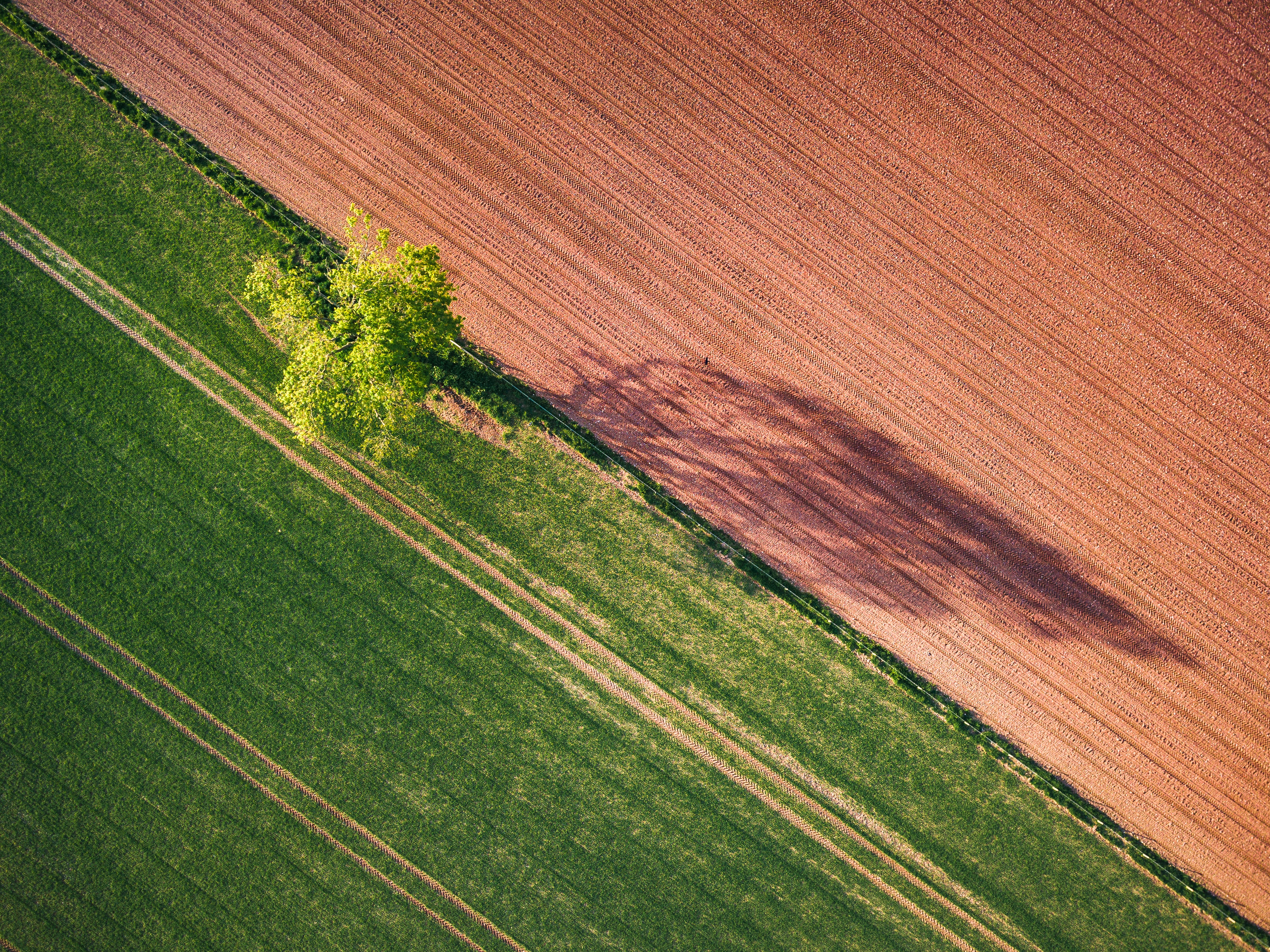 Antropocene (l’epoca dell’uomo) è un termine che viene utilizzato per descrivere l’epoca che secondo alcuni studiosi staremo vivendo. Si tratta di un’epoca nella quale l’impatto delle attività antropiche (di origine umana) è tale da divenire geologicamente e globalmente rilevante (si veda Crutzen and Stoermer 2000).
Antropocene (l’epoca dell’uomo) è un termine che viene utilizzato per descrivere l’epoca che secondo alcuni studiosi staremo vivendo. Si tratta di un’epoca nella quale l’impatto delle attività antropiche (di origine umana) è tale da divenire geologicamente e globalmente rilevante (si veda Crutzen and Stoermer 2000).
Dalla fine degli anni 90’ in poi la definizione di questa epoca ed i suoi confini temporali sono stati al centro di numerosi dibattiti a cavallo tra le scienze naturali e sociali. Alcuni hanno fatto iniziare l’“epoca dell’uomo” dalla rivoluzione neolitica, come avanzato dall’ipotesi di Ruddiman; altri dallo “scambio colombiano” e il cosiddetto “Orbis Spike” dovuto all’intensificazione degli ‘scambi’ di specie animali e vegetali ad opera del colonialismo Europeo nel XVII secolo (Crosby 1972); altri invece con la rivoluzione termo-industriale del IX secolo o la “grande accelerazione” avvenuta nel più recente secondo dopoguerra (Steffen et al. 2011, 2015). Nel corso degli anni, tali definizioni sono state arricchite dagli apporti (e le critiche) provenienti dalla storia, la geografia culturale, l’antropologia e la sociologia. Ad esempio, sociologi e storici di ispirazione marxista come John Bellamy Foster (2000) e Jason W. Moore (2016) hanno analizzato profondamente quest’epoca, in particolare evidenziandone le problematiche epistemologiche e politiche derivanti dalla reiterazione di un “anthropos” universalizzante, un’umanità che comprende tutti, separata quindi dalle condizioni sociali e materiali nella quale si realizza.
In questa sezione troverete sicuramente molti riferimenti a tale dibattito, come anche i più recenti sviluppi di una letteratura proveniente da scienze sociali ‘ibride’, e che si interroga sui rapporti tra umani e “non-umani” nei loro ambienti, come elemento di analisi centrale per definire questa nuova contingenza storica, naturale quanto culturale.
Armiero, M. (2021). L’era degli scarti: cronache dal Wasteocene, la discarica globale (M. L. Chiesara, Trans.). Einaudi.
Benessia, A., Funtowicz, S., Bradshaw, G., Ferri, F., Ráez-Luna, E. F., & Medina, C. P. (2012). Hybridizing sustainability: towards a new praxis for the present human predicament. Sustainability Science, 7(S1), 75–89. https://doi.org/10.1007/s11625-011-0150-4
Brightman, M., & Lewis, J. (Eds.). (2017). The Anthropology of Sustainability: Beyond Development and Progress. Palgrave Macmillan US. https://doi.org/10.1057/978-1-137-56636-2
Diogo, M. P. (2019). Gardens and Human Agency in the Anthropocene (A. Simões & A. Duarte Rodriguez, Eds.). Routledge Environmental Humanities.
Haraway, D. (2015). Anthropocene, Capitalocene, Plantationocene, Chthulucene: Making Kin. Environmental Humanities, 6(1), 159–165. https://doi.org/10.1215/22011919-3615934
Haraway, D., Ishikawa, N., Gilbert, S. F., Olwig, K., Tsing, A. L., & Bubandt, N. (2015). Anthropologists Are Talking – About the Anthropocene. Ethnos, 81(3), 535–564. https://doi.org/10.1080/00141844.2015.1105838
Hopes, A. & Perry, L. (2019). Reflections on the Plantationocene: A conversation with Donna Haraway and Anna Tsing, moderated by Gregg Mitman. Edge Effects Magazine. Nelson Institute, University of Wisconsin-Madison.
Jagodzinski (Ed.). (2018). Interrogating the Anthropocene. Palgrave Studies in Educational Futures, Springer Nature. https://doi.org/10.1007/978-3-319-78747-3
Juan Martínez Alier. (2005). The environmentalism of the poor: a study of ecological conflicts and valuation. Oxford University Press.
Latour, B., Stengers, I., Tsing, A., & Bubandt, N. (2018). Anthropologists Are Talking – About Capitalism, Ecology, and Apocalypse. Ethnos, 83(3), 587–606. https://doi.org/10.1080/00141844.2018.1457703
Lorimer, J. (2015). Wildlife in the Anthropocene: conservation after nature. University Of Minnesota Press.
Mitman, G., Armiero, M., & Emmett, R. (Eds.). (2017). Future remains :a cabinet of curiosities for the Anthropocene. University of Chicago Press. https://doi.org/10.7208/chicago/9780226508825.001.0001
Moore, J. W. (2017). Antropocene o capitalocene? Scenari di ecologia-mondo nella crisi planetaria (A. Barbero & E. Leonardi, Eds.). Ombre Corte, Verona.
Papadopoulos, D., Puig de la Bellacasa, M., & Myers, N. (Eds.). (2022). Reactivating Elements. Substance, Actuality and Practice from Chemistry to Cosmology. Duke University Press.
Powell, M. A. (2016). Vanishing America : species extinction, racial peril, and the origins of conservation. Harvard University Press.
Renn J. (2020). The evolution of knowledge: rethinking science for the Anthropocene. Princeton University Press.
Tsing, A. L., Mathews, A. S., & Bubandt, N. (2019). Patchy Anthropocene: Landscape Structure, Multispecies History, and the Retooling of Anthropology: An Introduction to Supplement 20. Current Anthropology, 60(S20), S186–S197. https://doi.org/10.1086/703391
Uekötter, F., & Lübken, U. (Eds.). (2016). Managing the unknown: essays on environmental ignorance. Berghahn Books.
*Photo by Ivan Bandura on Unsplash
Studi umanistici e scienze sociali si interrogano su cosa significhi convivere, relazionarsi, costruire politiche e immaginare nuove pratiche di ricerca che pongano al centro i “non-umani”
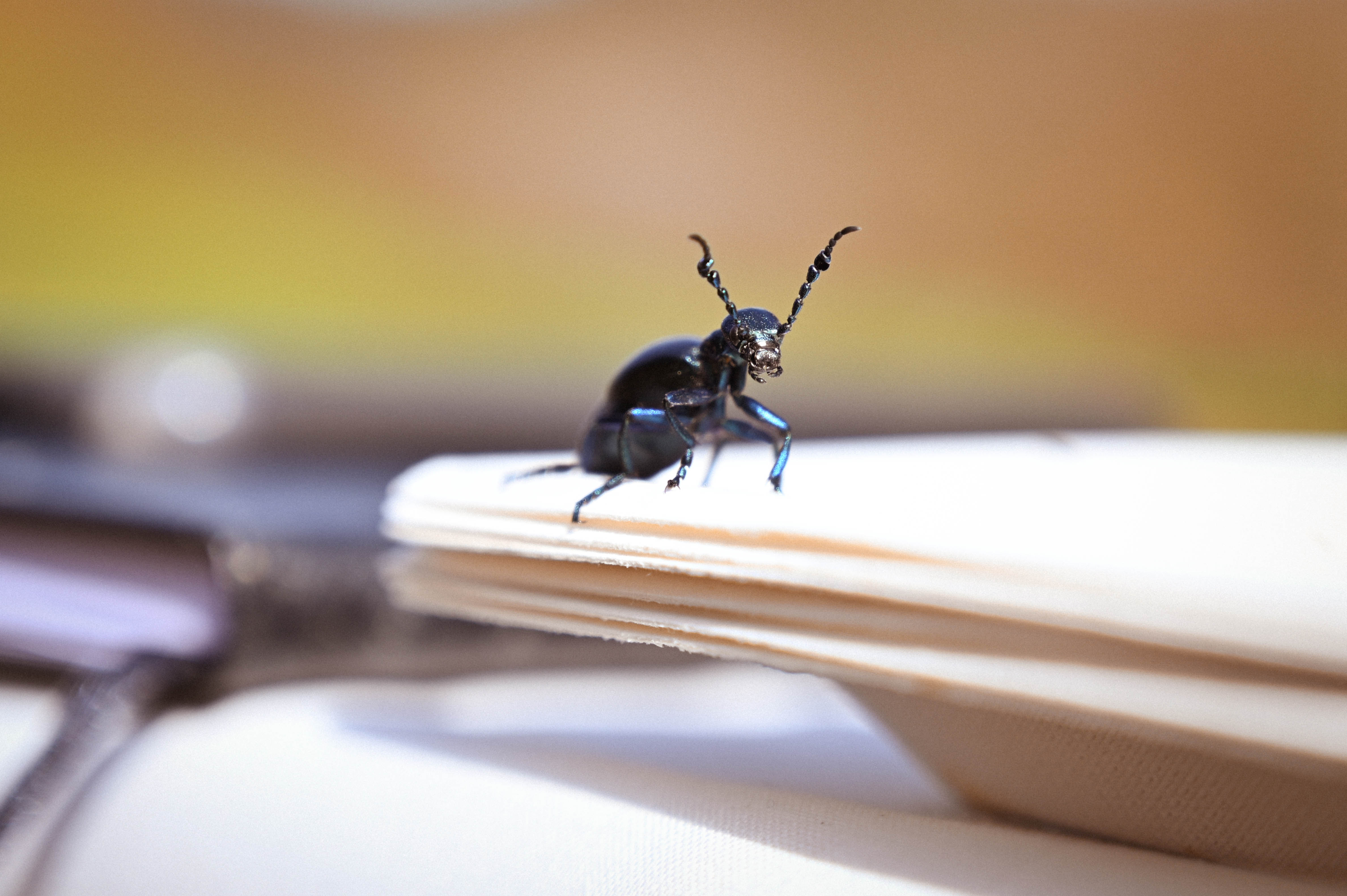 L’attenzione sulla molteplicità delle specie e il rapporto tra di esse non sono affatto nuove all’interno delle scienze sociali ed antropologiche.
L’attenzione sulla molteplicità delle specie e il rapporto tra di esse non sono affatto nuove all’interno delle scienze sociali ed antropologiche.
Tra i primi studi multi-specie possiamo annoverare infatti “The American Beaver and His Works” (1868), opera in cui uno dei padri fondatori dell’antropologia, Lewis Henry Morgan, descrive le abilità di costruttori di dighe dei castori in termini quasi ingegneristici o, ancora più interessante, quando parla di tali abilità in termini di conoscenza acquisita. Andando un po’ più avanti nel tempo, nella seconda metà del XX secolo, troviamo un altro antropologo interessato al comportamento animale, Gregory Bateson (1972) i cui studi sulla comunicazione dei cetacei furono anche al centro di alcune controversie.
In tempi più recenti, e non è affatto un caso, ricercatori e ricercatrici provenienti da studi umanistici e scienze sociali sono ritornati ad interrogarsi su cosa significhi convivere, relazionarsi, costruire politiche e, non ultimo, immaginare delle nuove pratiche di ricerca (Hartigan 2019a, 2019b) che pongano al centro i “non-umani” (o oltre che umani, che dir si voglia). Animali, ma anche piante, muschi, licheni, batteri, nematodi e virus, ritornano quindi centrali nelle quotidianità del contemporaneo. Non solo nelle pratiche di laboratorio (Raffaettà 2020), ma anche nella salute (Lorimer 2020), nella produzione di cibo (Tsing 2015, Paxson 2013) o nella gestione degli spazi politici (Fall 2014, 2021; Hinchliffe 2015).
Le alleanze, ma anche i conflitti e i rapporti che, sebbene in maniera diversificata, come specie decidiamo di instaurare con i cosiddetti “non-umani” sono al centro di molte delle riflessioni presenti in questa sezione bibliografica.
Asdal, K., Hinchliffe, S., & Tone Druglitrø. (2018). Humans, animals and biopolitics : the more-than-human condition. Routledge, Taylor & Francis Group. C.
Beisel, U., Kelly, A. H., & Tousignant, N. (2013). Knowing Insects: Hosts, Vectors and Companions of Science. Science as Culture, 22(1), 1–15. https://doi.org/10.1080/09505431.2013.776367
Brightman, M., & Lewis, J. (Eds.). (2017). The Anthropology of Sustainability: Beyond development and progress. Palgrave Studies in Anthropology of Sustainability book series (PSAS).
Eben Kirksey. (2014). The Multispecies Salon. Duke University Press.
Ernwein, M., & Fall, J. J. (2015). Communicating invasion: understanding social anxieties around mobile species. Geografiska Annaler: Series B, Human Geography, 97(2), 155–167. https://doi.org/10.1111/geob.12071
Fall, J. (2014). Biosecurity and ecology: beyond the nativist debate. In K. Barker, S. Taylor, & A. Dobson (Eds.), Biosecurity : the socio-politics of invasive species and infectious diseases (pp. 167–181). Earthscan/Routledge.
Fall, J. (2021). What is an Invasive Alien Species?: Discord, Dissent and Denialism. In K. Barker & R. A. Francis (Eds.), Routledge Handbook of Biosecurity and Invasive Species (pp. 40–54). Routledge.
Fishel, S. R. (2017). The microbial state global thriving and the body politic. Minneapolis University Of Minnesota Press.
Hartigan, J. (2019a). Cultural Analysis of Microbial Worlds. In S. Besky & A. Blanchette (Eds.), How Nature Works: Rethinking Labor on a Troubled Planet. University of New Mexico Press • Albuquerque.
Hartigan, J. (2019b). Plants as ethnographic subjects. Anthropology Today, 35(2), 1–2. https://doi.org/10.1111/1467-8322.12491
Heather Anne Swanson, Lien, M. E., & Gro Ween. (2018). Domestication gone wild : politics and practices of multispecies relations. Duke University Press.
Hinchliffe, S. (2015). More than one world, more than one health: Re-configuring interspecies health. Social Science & Medicine, 129, 28–35. https://doi.org/10.1016/j.socscimed.2014.07.007
Hinchliffe, S., Bingham, N., Allen, J., & Carter, S. (2017). Pathological lives : disease, space and biopolitics. John Wiley & Sons Inc.
Hustak, C., & Myers, N. (2012). Involutionary Momentum: Affective Ecologies and the Sciences of Plant/Insect Encounters. Differences – a Journal of Feminist Cultural Studies, 23(3), 74–118. https://doi.org/10.1215/10407391-1892907
Lorimer, J. (2020). The probiotic planet : using life to manage life. University Of Minnesota Press.
Nealon, J. T. (2016). Plant theory : biopower et vegetable life. Stanford, California Stanford University Press.
Paxson, H. (2008). Post-Pasteurian Cultures: The Microbiopolitics of Raw-Milk Cheese in the United States. Cultural Anthropology, 23(1), 15–47. https://doi.org/10.1111/j.1548-1360.2008.00002.x
Paxson, H. (2013). The life of cheese : crafting food and value in America. University Of California Press.
Paxson, H., & Helmreich, S. (2013). The perils and promises of microbial abundance: Novel natures and model ecosystems, from artisanal cheese to alien seas. Social Studies of Science, 44(2), 165–193. https://doi.org/10.1177/0306312713505003
RaffaetàR. (2020). Antropologia dei microbi : come la metagenomica sta riconfigurando l’umano e la salute. Cisu.
THE MULTISPECIES EDITING COLLECTIVE. (2017). Troubling species : care and belonging in a relational world. Rachel Carson Center For Environment And Society.
Tsing, A. (2015a). Feral Biologies. University College London. Center for the Anthropology of Sustainability (CAOS).
Tsing, A. (2015b). The Mushroom At The End Of The World : On The Possibility Of Life In Capitalist Ruins. Princeton University Press.
Tsing, A. L., Swanson, H., Gan, E., & Nils Bubandt. (2017). Arts of living on a damaged planet. University Of Minnesota Press. Copyright.
Urquhart, J., Marzano, M., & Potter, C. (Eds.). (2018). The human dimensions of forest and tree health : global perspectives. Cham, Switzerland Palgrave Macmillan.
*foto di Samuele Giatti, scattata durante un meeting di progetto a Pianpicollo
Quale è stata la nostra relazione con il mondo fino ad ora? E come immaginare delle alternative? È possibile immaginare una politica della cura?
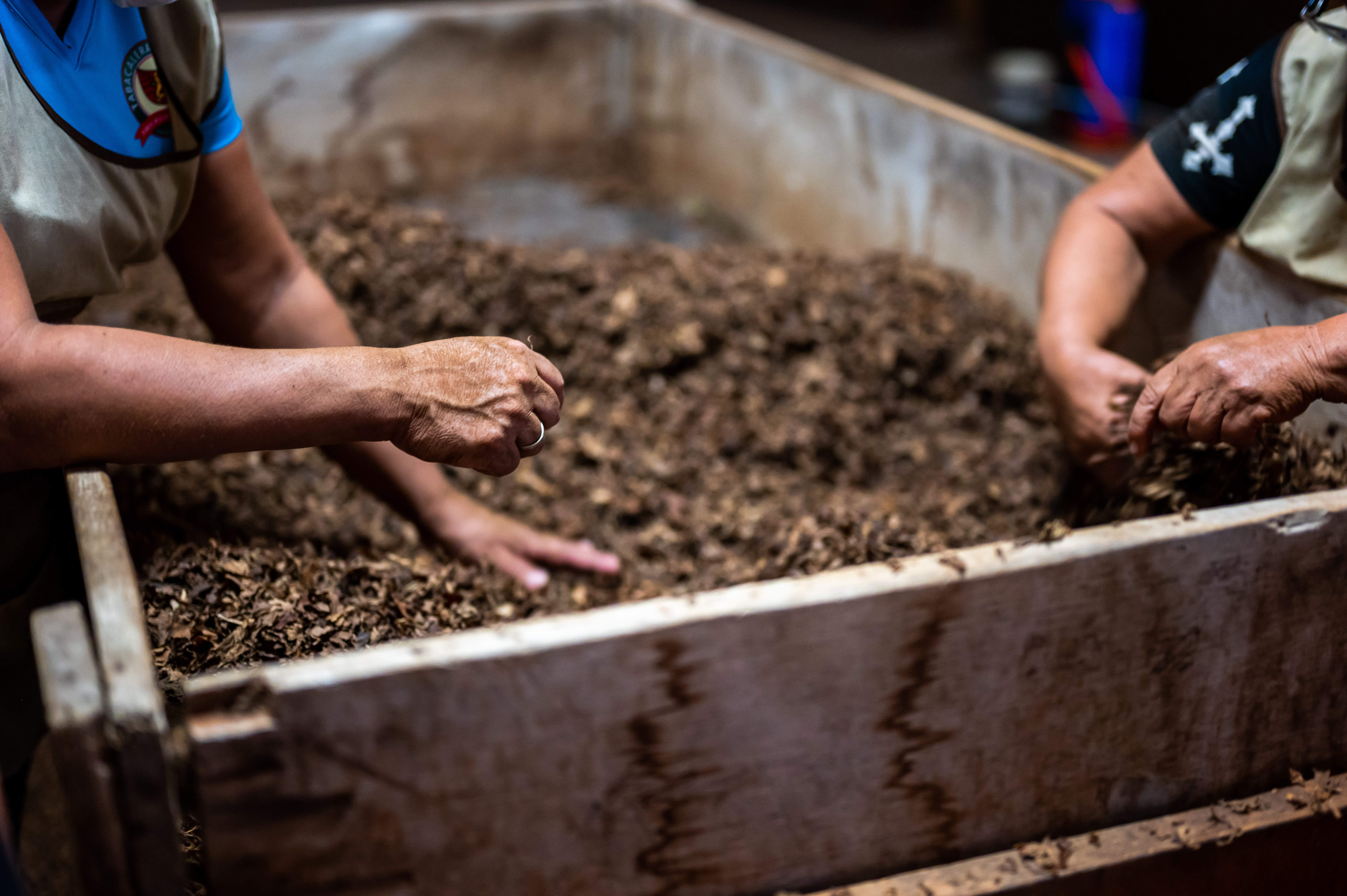 Quale è stata la nostra relazione con il mondo fino ad ora? E come immaginare delle alternative? È possibile immaginare una politica della cura? Le riflessioni e gli studi sulla cura sono uno dei filoni teorici centrali nel nostro progetto.
Quale è stata la nostra relazione con il mondo fino ad ora? E come immaginare delle alternative? È possibile immaginare una politica della cura? Le riflessioni e gli studi sulla cura sono uno dei filoni teorici centrali nel nostro progetto.
Il termine cura inizia a comparire nel vocabolario delle riflessioni teoriche di matrice femminista verso gli anni ’80. La cura come strumento analitico è molto diffusa anche nelle trattazioni dei Science Studies e di storia della scienza, come negli studi sul lavoro, necessario, ma invisibile, dei tecnici di laboratorio dietro i grandi passi in avanti della ricerca scientifica (Shapin 1989).
Tra le trattazioni più recenti è d’obbligo invece annoverare Maria Puig De la Bellacasa (2010, 2013, 2015, 2017). I suoi lavori, sebbene partano dalla volontà di un’interazione teorica e critica nei confronti di alcuni dei caposaldi del costruttivismo sociale negli STS di inizio millennio, finiscono per approdare ad una dimensione marcatamente pratica in cui la cura diviene semplicemente “everything we do to mantain”.
Nel lavoro, negli affetti, nell’etica e nella politica la cura si impone come antitesi dell’abbandono e l’esaustione. Ecco che torna quindi la relazione con il mondo, in particolare con i suoli, un tema a cui Puig de la Bellacasa dedica molti dei suoi lavori.
Dalla scienza all’agricoltura, quindi, come avere cura dei suoli? In questa sezione riportiamo qualche suggerimento proveniente dalla letteratura.
Dawoe, E. K., Quashie-Sam, J., Isaac, M. E., & Oppong, S. K. (2012). Exploring farmers’ local knowledge and perceptions of soil fertility and management in the Ashanti Region of Ghana. Geoderma, 179-180, 96–103. https://doi.org/10.1016/j.geoderma.2012.02.015
Friedrichsen, C. N., Hagen-Zakarison, S., Friesen, M. L., McFarland, C. R., Tao, H., & Wulfhorst, J. D. (2021). Soil health and well-being: Redefining soil health based upon a plurality of values. Soil Security, 2, 100004. https://doi.org/10.1016/j.soisec.2021.100004
Gomiero, T. (2016). Soil Degradation, Land Scarcity and Food Security: Reviewing a Complex Challenge. Sustainability, 8(3), 281. https://doi.org/10.3390/su8030281
Gomiero, T. (2019). Soil and crop management to save food and enhance food security. Saving Food, 33–87. https://doi.org/10.1016/b978-0-12-815357-4.00002-x
Handelsman, J., & Cohen, K. (2022). A world without soil : the past, present, and precarious future of the earth beneath our feet. Yale University Press.
Hayden, J. A. (2015). The social life of soil [PhD Thesis].
Krasilnikov, P., & Tabor, J. (2010). Ethnopedology and Folk Soil Taxonomies. In W. H. Verheye (Ed.), Soils, Plant Growth and Crop Production (Vol. 3). Encyclopedia of Life Support Systems (EOLSS).
Lobry de Bruyn, L. A., & Abbey, J. A. (1999, July). Talking dirt, a qualitative study of farmers’ soil sense. AQR. Issues of Rigour in Qualitative Research.
Lyons, K. M. (2020). Vital decomposition: soil practitioners and life politics. Duke University Press.
Mann, C. (2017). A Dark Laboratory: Exploring Soil Health Perceptions and Assessments in the Maritimes [MSc Thesis].
Martin, A., Myers, N., & Viseu, A. (2015). The politics of care in technoscience. Social Studies of Science, 45(5), 625–641. https://doi.org/10.1177/0306312715602073
Petrescu-Mag, R. M., Petrescu, D. C., & Azadi, H. (2020). A social perspective on soil functions and quality improvement: Romanian farmers’ perceptions. Geoderma, 380, 114573. https://doi.org/10.1016/j.geoderma.2020.114573
Puig de la Bellacasa, M. (2010). Matters of care in technoscience: Assembling neglected things. Social Studies of Science, 41(1), 85–106. https://doi.org/10.1177/0306312710380301
Puig de la Bellacasa, M. (2013). Encountering Bioinfrastructure: Ecological Struggles and the Sciences of Soil. Social Epistemology, 28(1), 26–40. https://doi.org/10.1080/02691728.2013.862879
Puig de la Bellacasa, M. (2015). Making time for soil: Technoscientific futurity and the pace of care. Social Studies of Science, 45(5), 691–716. https://doi.org/10.1177/0306312715599851
Puig de la BellacasaM. (2017). Matters of care : speculative ethics in more than human worlds. University Of Minnesota Press.
Richter, D. D. (2019). Game Changer in Soil Science. The Anthropocene in soil science and pedology. Journal of Plant Nutrition and Soil Science, 183(1), 5–11. https://doi.org/10.1002/jpln.201900320
Richter, D. deB., Bacon, A. R., Mobley, M. L., Richardson, C. J., Andrews, S. S., West, L., Wills, S., Billings, S., Cambardella, C. A., Cavallaro, N., DeMeester, J. E., Franzluebbers, A. J., Grandy, A. S., Grunwald, S., Gruver, J., Hartshorn, A. S., Janzen, H., Kramer, M. G., Ladha, J. K., & Lajtha, K. (2011). Human-Soil Relations are Changing Rapidly: Proposals from SSSA’s Cross-Divisional Soil Change Working Group. Soil Science Society of America Journal, 75(6), 2079–2084. https://doi.org/10.2136/sssaj2011.0124
Stewart, R. D., Jian, J., Gyawali, A. J., Thomason, W. E., Badgley, B. D., Reiter, M. S., & Strickland, M. S. (2018). What We Talk about When We Talk about Soil Health. Agricultural & Environmental Letters, 3(1), 180033. https://doi.org/10.2134/ael2018.06.0033
*Photo by Conscious Design on Unsplas
Letteratura su un approccio multidimensionale all’agricoltura, con una solida struttura agronomica ed ecologica, unita ad una centralità degli aspetti socioeconomici e sociopolitici.
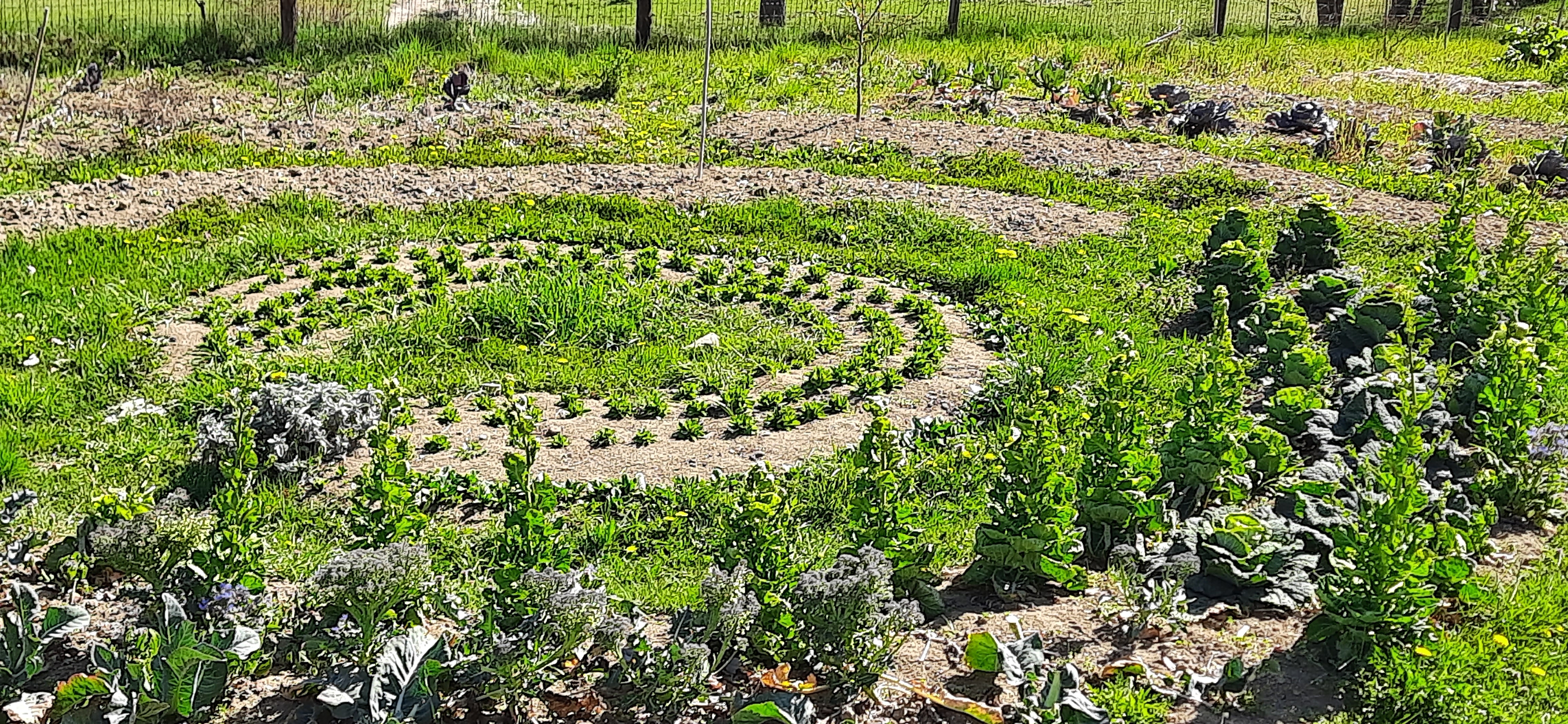 Non esiste una sola definizione di Agroecologia. Il termine racchiude in sé un universo di pratiche agricole, ecologiche e sociali.
Non esiste una sola definizione di Agroecologia. Il termine racchiude in sé un universo di pratiche agricole, ecologiche e sociali.
Il termine Agroecologia compare per la prima volta nel 1930, quando l’agronomo cecoslovacco Basil Bensin propone di creare a Roma il primo istituto internazionale di agricoltura fondato sul cosiddetto approccio agro-ecologico. Ma sarà solo negli anni Ottanta che l’agroecologia diventerà, in America Latina, una vera e propria area di ricerca e di pratica. L’esigenza di rispondere ai disastri dell’agricoltura industriale creò una convergenza tra ricercatori e comunità contadine. Successivamente l’agroecologia si arricchirà di apporti provenienti dall’agronomia, dall’ecologia, dalla geografia, dalle discipline storiche, sociologiche, antropologiche ed etnobotaniche.
Fu così che si formò un approccio multidimensionale all’agricoltura, grazie ad una solida struttura agronomica ed ecologica, unita ad una centralità degli aspetti socioeconomici e sociopolitici. In questa sezione riportiamo una parziale rassegna di studi sull’agroecologia, ma anche altre tipologie di agricoltura, come l’agricoltura cosiddetta industriale, anch’essa, chiaramente, portatrice di altri universi di pratiche e precisi impianti ideologici.
Agudio, E., Boschen, M., Sandoval, L., Çimen, O., & Wächter, C. (Eds.). (2020). Agropoetics Reader. The Institute for Endotic Research Press. https://www.savvy-contemporary.com/site/assets/files/6097/agropoetics-reader.pdf
Altieri, M. A. (2002). Fatal harvest: Old and new dimensions of the ecological tragedy of modern agriculture. Journal of Business Administration and Policy Analysis, 30-31, 1–26. https://www.researchgate.net/publication/268055996_Fatal_harvest_Old_and_new_dimensions_of_the_ecological_tragedy_of_modern_agriculture
Bursten, J. R. S., & Kendig, C. (2021). Growing knowledge: Epistemic objects in agricultural extension work. Studies in History and Philosophy of Science, 88, 85–91. https://doi.org/10.1016/j.shpsa.2021.03.002
Castonguay, S. (2010). Creating an Agricultural World Order: Regional Plant Protection Problems and International Phytopathology, 1878-1939. Agricultural History, 84(1), 46–73. https://doi.org/10.3098/ah.2010.84.1.46
Compagnone, C., Lamine, C., & Dupré, L. (2018). The production and circulation of agricultural knowledge as interrogated by agroecology: Of old and new. Revue d’Anthropologie Des Connaissances, 12(2). https://doi.org/https://doi.org/10.3917/rac.039.a
Dove, M. R. (1983). Theories of swidden agriculture, and the political economy of ignorance. Agroforestry Systems, 1(2), 85–99. https://doi.org/10.1007/bf00596351
Durant, J. L. (2020). Ignorance loops: How non-knowledge about bee-toxic agrochemicals is iteratively produced. Social Studies of Science, 50(5), 751–777. https://doi.org/10.1177/0306312720923390
Eastwood, C., Klerkx, L., Ayre, M., & Dela Rue, B. (2017). Managing Socio-Ethical Challenges in the Development of Smart Farming: From a Fragmented to a Comprehensive Approach for Responsible Research and Innovation. Journal of Agricultural and Environmental Ethics, 32(5-6), 741–768. https://doi.org/10.1007/s10806-017-9704-5
Henke, C. (2008). Cultivating science, harvesting power : science and industrial agriculture in California. Mit Press.
Kelemen, E., Nguyen, G., Gomiero, T., Kovács, E., Choisis, J.-P., Choisis, N., Paoletti, M. G., Podmaniczky, L., Ryschawy, J., Sarthou, J.-P., Herzog, F., Dennis, P., & Balázs, K. (2013). Farmers’ perceptions of biodiversity: Lessons from a discourse-based deliberative valuation study. Land Use Policy, 35, 318–328. https://doi.org/10.1016/j.landusepol.2013.06.005
Kinchy, A. (2012). Seeds, science, and struggle: the global politics of transgenic crops. The Mit Press.
Méndez Cota, G. (2011). Introduction: The Posthuman Life of Agriculture: Local Knowledges, Open Source Lives. In G. Méndez Cota (Ed.), Another Technoscience is Possible: Agricultural Lessons for the Posthumanities. Living Books About Life – Open Humanities Press.
Moore, J. W. (2013). Questione agraria e crisi ecologiche nella prospettiva della storia-mondo. Scienze Del Territorio – Firenze University Press, 1, 247–256.
Russell, E. (2001). War and nature : fighting humans and insects with chemicals from World War I to Silent Spring. Cambridge University Press.
Scoones, I. (2015). Sustainable livelihoods and rural development. Rugby Practical Action Publishing.
Uekoetter, Frank (2011) The Magic of One: Reflections on the Pathologies of Monoculture. RCC Perspectives 2011, no 2. doi.org/10.5282/rcc/5584
van der Ploeg, J. D. (2020). The political economy of agroecology. The Journal of Peasant Studies, 48(2), 274–297. https://doi.org/10.1080/03066150.2020.1725489
Weiskopf, D. A. (2020). Representing and coordinating ethnobiological knowledge. Studies in History and Philosophy of Science Part C: Studies in History and Philosophy of Biological and Biomedical Sciences, 84, 101328. https://doi.org/10.1016/j.shpsc.2020.101328
Contributi che indagano come e perché avvengono le interazioni tra discipline diverse all’interno degli Science Studies, sulla sostenibilità ambientale, l’educazione, ecc.
 La collaborazione è alla base delle pratiche di ricerca, ma come questa vada o debba strutturarsi richiede particolare attenzione. Le problematiche complesse della contemporaneità (si veda la voce Antropocene) evidenziano la necessità di abbandonare una rigida suddivisione tra discipline all’interno del processo di produzione di conoscenza.
La collaborazione è alla base delle pratiche di ricerca, ma come questa vada o debba strutturarsi richiede particolare attenzione. Le problematiche complesse della contemporaneità (si veda la voce Antropocene) evidenziano la necessità di abbandonare una rigida suddivisione tra discipline all’interno del processo di produzione di conoscenza.
In questa sezione riportiamo qualche contributo che indaga come e perché avvengono le interazioni tra discipline diverse all’interno degli Science Studies, sulla sostenibilità ambientale, l’educazione, ed altro.
Dear, P., & Jasanoff, S. (2010). Dismantling Boundaries in Science and Technology Studies. Isis, 101(4), 759–774. https://doi.org/10.1086/657475
Felt, U., Igelsböck, J., Schikowitz, A., & Völker, T. (2016). Transdisciplinary Sustainability Research in Practice. Science, Technology, & Human Values, 41(4), 732–761. https://doi.org/10.1177/0162243915626989
Fioramonti, L., Giordano, C., & Basile, F. L. (2021). Fostering Academic Interdisciplinarity: Italy’s Pioneering Experiment on Sustainability Education in Schools and Universities. Frontiers in Sustainability, 2(631610). https://doi.org/10.3389/frsus.2021.631610
Kastenhofer, K., & Molyneux-Hodgson, S. (2021). Community and identity in contemporary technosciences. Cham, Switzerland Springer.
Kelly, R., Mackay, M., Nash, K. L., Cvitanovic, C., Allison, E. H., Armitage, D., Bonn, A., Cooke, S. J., Frusher, S., Fulton, E. A., Halpern, B. S., Lopes, P. F. M., Milner-Gulland, E. J., Peck, M. A., Pecl, G. T., Stephenson, R. L., & Werner, F. (2019). Ten tips for developing interdisciplinary socio-ecological researchers. Socio-Ecological Practice Research, 1(2), 149–161. https://doi.org/10.1007/s42532-019-00018-2
König, A., Ravetz, J., Raber, B., Stankiewicz, J., Rojas-Aedo, R., Hondrila, K., & Pickar, K. (2021). Taking the Complex Dynamics of Human–Environment–Technology Systems Seriously: A Case Study in Doctoral Education at the University of Luxembourg. Frontiers in Sustainability, 2(673033). https://doi.org/10.3389/frsus.2021.673033
Ludwig, D., Boogaard, B., Macnaghten, P., & Leeuwis, C. (2021). The Politics of Knowledge in Inclusive Development and Innovation. Routledge. https://doi.org/10.4324/9781003112525
Marenko, B. (2021). Stacking Complexities: Reframing Uncertainty through Hybrid Literacies. Design and Culture, 13(2), 165–184. https://doi.org/10.1080/17547075.2021.1916856
Miller, T. R. (2012). Constructing sustainability science: emerging perspectives and research trajectories. Sustainability Science, 8(2), 279–293. https://doi.org/10.1007/s11625-012-0180-6
Misra, S., & Lotrecchiano, G. R. (2018). Transdisciplinary Communication: Introduction to the Special Series. Informing Science: The International Journal of an Emerging Transdiscipline, 21. https://doi.org/10.28945/4079
Refsum Jensenius, A. (2012, March 12). Disciplinarities: intra, cross, multi, inter, trans. Alexander Refsum Jensenius. https://www.arj.no/2012/03/12/disciplinarities-2/
Silvast, A., & Foulds, C. (2022). Sociology of interdisciplinarity: the dynamics of energy research. Palgrave Macmillan.*Photo by Andrés Canchón on Unsplash
Studi sulle diverse forme di pubblico organizzato, di cittadinanza attiva, di comitati territoriali e movimenti sociali ed ambientali che hanno dovuto interagire con le conoscenze scientifiche esperte al fine di perseguire un obiettivo di carattere sociale e/o politico.
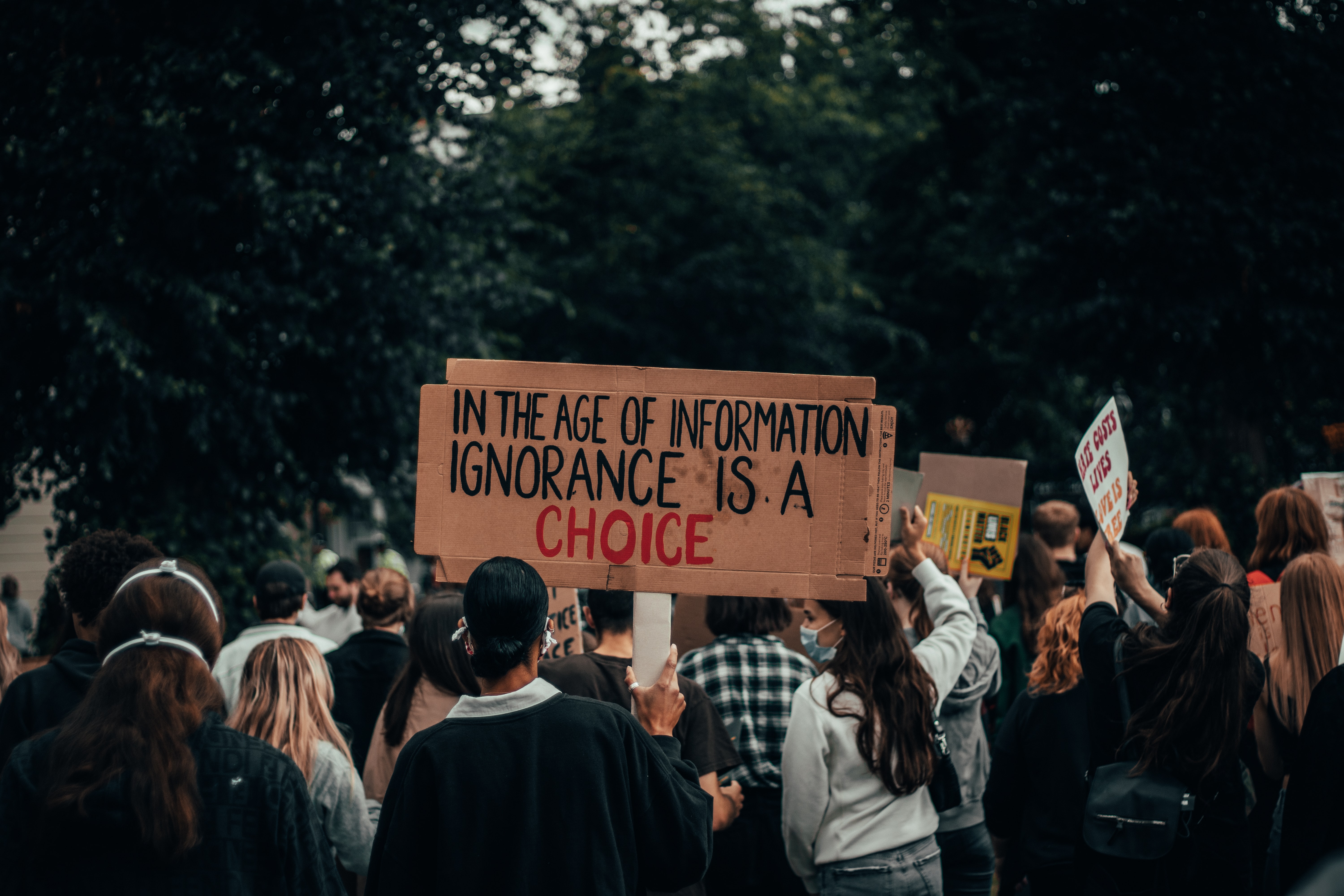 Anche circoscrivendo i nostri interessi alle forme di interazione tra conoscenze scientifiche esperte e altre forme di conoscenze nel quadro di una dialettica istituzionale, la letteratura sulle forme di partecipazione, co-produzione e mobilitazione rimarrebbe ancora estremamente vasta. Sono infatti molti i casi empirici, e le elaborazioni teoriche basate su questi, in cui diverse forme di pubblico organizzato, di cittadinanza attiva, di comitati territoriali e movimenti sociali ed ambientali hanno dovuto interagire con le conoscenze scientifiche esperte al fine di perseguire un obbiettivo di carattere sociale e/o politico. In questa sezione riportiamo del materiale proveniente dall’intersezione tra studi sui movimenti sociali (SMS) e science studies (STS).
Anche circoscrivendo i nostri interessi alle forme di interazione tra conoscenze scientifiche esperte e altre forme di conoscenze nel quadro di una dialettica istituzionale, la letteratura sulle forme di partecipazione, co-produzione e mobilitazione rimarrebbe ancora estremamente vasta. Sono infatti molti i casi empirici, e le elaborazioni teoriche basate su questi, in cui diverse forme di pubblico organizzato, di cittadinanza attiva, di comitati territoriali e movimenti sociali ed ambientali hanno dovuto interagire con le conoscenze scientifiche esperte al fine di perseguire un obbiettivo di carattere sociale e/o politico. In questa sezione riportiamo del materiale proveniente dall’intersezione tra studi sui movimenti sociali (SMS) e science studies (STS).
Conde, M. (2014). Activism mobilising science. Ecological Economics, 105(2014), 67–77. https://doi.org/10.1016/j.ecolecon.2014.05.012
Fischer, F. (2000). Citizens, experts, and the environment: the politics of local knowledge. Duke University Press.
Frickel, S., Gibbon, S., Howard, J., Kempner, J., Ottinger, G., & Hess, D. J. (2009). Undone Science: Charting Social Movement and Civil Society Challenges to Research Agenda Setting. Science, Technology, & Human Values, 35(4), 444–473. https://doi.org/10.1177/0162243909345836
Haklay, M., Fraisl, D., Greshake Tzovaras, B., Hecker, S., Gold, M., Hager, G., Ceccaroni, L., Kieslinger, B., Wehn, U., Woods, S., Nold, C., Balázs, B., Mazzonetto, M., Ruefenacht, S., Shanley, L. A., Wagenknecht, K., Motion, A., Sforzi, A., Riemenschneider, D., & Dorler, D. (2021). Contours of citizen science: a vignette study. Royal Society Open Science, 8(8). https://doi.org/10.1098/rsos.202108
Hess, C., & Ostrom, E. (2011). Understanding knowledge as a commons: from theory to practice. Mit Press.
Hess, D. J. (2007a). Alternative pathways in science and industry : activism, innovation, and the environment in an era of globalization. Mit Press.
Hess, D. J. (2007b). Crosscurrents: Social Movements and the Anthropology of Science and Technology. American Anthropologist, 109(3), 463–472. https://www.jstor.org/stable/4496720
Hess, D. J. (2009). The Potentials and Limitations of Civil Society Research: Getting Undone Science Done. Sociological Inquiry, 79(3), 306–327. https://doi.org/10.1111/j.1475-682x.2009.00292.x
Hosseini, S. A. H. (2010). Activist Knowledge: Interrogating the Ideational Landscape of Social Movements. The International Journal of Interdisciplinary Social Sciences: Annual Review, 5(5), 339–358. https://doi.org/10.18848/1833-1882/cgp/v05i05/59299
Jasanoff, S. (2006). States of knowledge: the co-production of science and social order. Routledge.
Kinchy, A. (2010). Epistemic Boomerang: Expert Policy Advice As Leverage in the Campaign Against Transgenic Maize in Mexico. Mobilization: An International Quarterly, 15(2), 179–198. https://doi.org/10.17813/maiq.15.2.a568g55h0k663k30
Kinchy, A. (2012). Seeds, science, and struggle : the global politics of transgenic crops. The Mit Press.
Krohn, W., & Weyer, J. (1994). Society as a laboratory: the social risks of experimental research. Science and Public Policy, 21(3), 173–183. https://doi.org/10.1093/spp/21.3.173
Lowry, C. S., & Stepenuck, K. F. (2021). Is Citizen Science Dead? Environmental Science & Technology, 55(8), 4194–4196. https://doi.org/10.1021/acs.est.0c07873
Macq, H., Parotte, C., & Delvenne, P. (2021). Exploring Frictions of Participatory Innovation between Sites and Scales. Science as Culture, 30(2), 161–171. https://doi.org/10.1080/09505431.2021.1910230
Martinez-Alier, J., Anguelovski, I., Bond, P., Bene, D. D., Demaria, F., Gerber, J.-F., Greyl, L., Haas, W., Healy, H., Marín-Burgos, V., Ojo, G., Porto, M., Rijnhout, L., Rodríguez-Labajos, B., Spangenberg, J., Temper, L., Warlenius, R., & Yánez, I. (2014). Between activism and science: grassroots concepts for sustainability coined by Environmental Justice Organizations. Journal of Political Ecology, 21(1), 19. https://doi.org/10.2458/v21i1.21124
Vohland, K., Ceccaroni, L., Perelló, J., Samson, R., Land-Zandstra, A., Lemmens, R., Ponti, M., & Wagenknecht, K. (Eds.). (2021). The science of citizen science. Springer.
Wynne, B. (2007). Public Participation in Science and Technology: Performing and Obscuring a Political–Conceptual Category Mistake. East Asian Science, Technology and Society: An International Journal, 1(1), 99–110. https://doi.org/10.1007/s12280-007-9004-7
Zuma-Netshiukhwi, G., Stigter, K., & Walker, S. (2013). Use of Traditional Weather/Climate Knowledge by Farmers in the South-Western Free State of South Africa: Agrometeorological Learning by Scientists. Atmosphere, 4(4), 383–410. https://doi.org/10.3390/atmos4040383
*Photo by Alex Motoc on Unsplash
Studi su cosa renda responsabile la ricerca e le sue istituzioni di fronte alle complessità e le incertezze del mondo contemporaneo
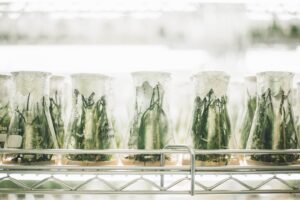 La Responsible Research and Innovation (o RRI) è un frame nato all’interno di contesti istituzionali europei atto ad all’analisi, la descrizione e la prescrizione pratiche responsabili all’interno dei processi di produzione scientifica ed avanzamento tecnologico. In questa sezione riportiamo alcuni apporti provenienti da ricercatori e ricercatrici che si sono interrogate cosa renda responsabile la ricerca e le sue istituzioni di fronte alle complessità e le incertezze del mondo contemporaneo.
La Responsible Research and Innovation (o RRI) è un frame nato all’interno di contesti istituzionali europei atto ad all’analisi, la descrizione e la prescrizione pratiche responsabili all’interno dei processi di produzione scientifica ed avanzamento tecnologico. In questa sezione riportiamo alcuni apporti provenienti da ricercatori e ricercatrici che si sono interrogate cosa renda responsabile la ricerca e le sue istituzioni di fronte alle complessità e le incertezze del mondo contemporaneo.
Frankel, M. S. (2015). An empirical exploration of scientists’ social responsibilities. Journal of Responsible Innovation, 2(3), 301–310. https://doi.org/10.1080/23299460.2015.1096737
Funtowicz, S., & Strand, R. (2011). Change and commitment: beyond risk and responsibility. Journal of Risk Research, 14(8), 995–1003. https://doi.org/10.1080/13669877.2011.571784
Glerup, C., Davies, S. R., & Horst, M. (2017). “Nothing really responsible goes on here”: scientists’ experience and practice of responsibility. Journal of Responsible Innovation, 4(3), 319–336. https://doi.org/10.1080/23299460.2017.1378462
L’Astorina, A., & Di Fiore, M. (2017). A New Bet for Scientists? Implementing the Responsible Research and Innovation (RRI) approach in the practices of research institutions. Relations, 5(2). https://doi.org/10.7358/rela-2017-002-last
L’Astorina, A., & Di Fiore, M. (Eds.). (2018). Scienziati in affanno? Ricerca e Innovazione Responsabili (RRI) in teoria e nelle pratiche. CNR Edizioni. https://doi.org/2018RRICNRBOOK3
Norström, A. V., Cvitanovic, C., Löf, M. F., West, S., Wyborn, C., Balvanera, P., Bednarek, A. T., Bennett, E. M., Biggs, R., de Bremond, A., Campbell, B. M., Canadell, J. G., Carpenter, S. R., Folke, C., Fulton, E. A., Gaffney, O., Gelcich, S., Jouffray, J.-B., Leach, M., & Le Tissier, M. (2020). Principles for knowledge co-production in sustainability research. Nature Sustainability, 3(3), 182–190. https://doi.org/10.1038/s41893-019-0448-2
Owen, R., von Schomberg, R., & Macnaghten, P. (2021). An unfinished journey? Reflections on a decade of responsible research and innovation. Journal of Responsible Innovation, 8(2), 1–17. https://doi.org/10.1080/23299460.2021.1948789
Schuurbiers, D. (2010). Social responsibility in research practice: engaging applied scientists with the socio-ethical context of their work. (P. Brey, P. Kroes, & A. Meijers, Eds.). Technische Universiteit Delft.
*Photo by CHUTTERSNAP on Unsplash
Lavori che si interrogano sul legame tra estetica, scienze ed ecologia
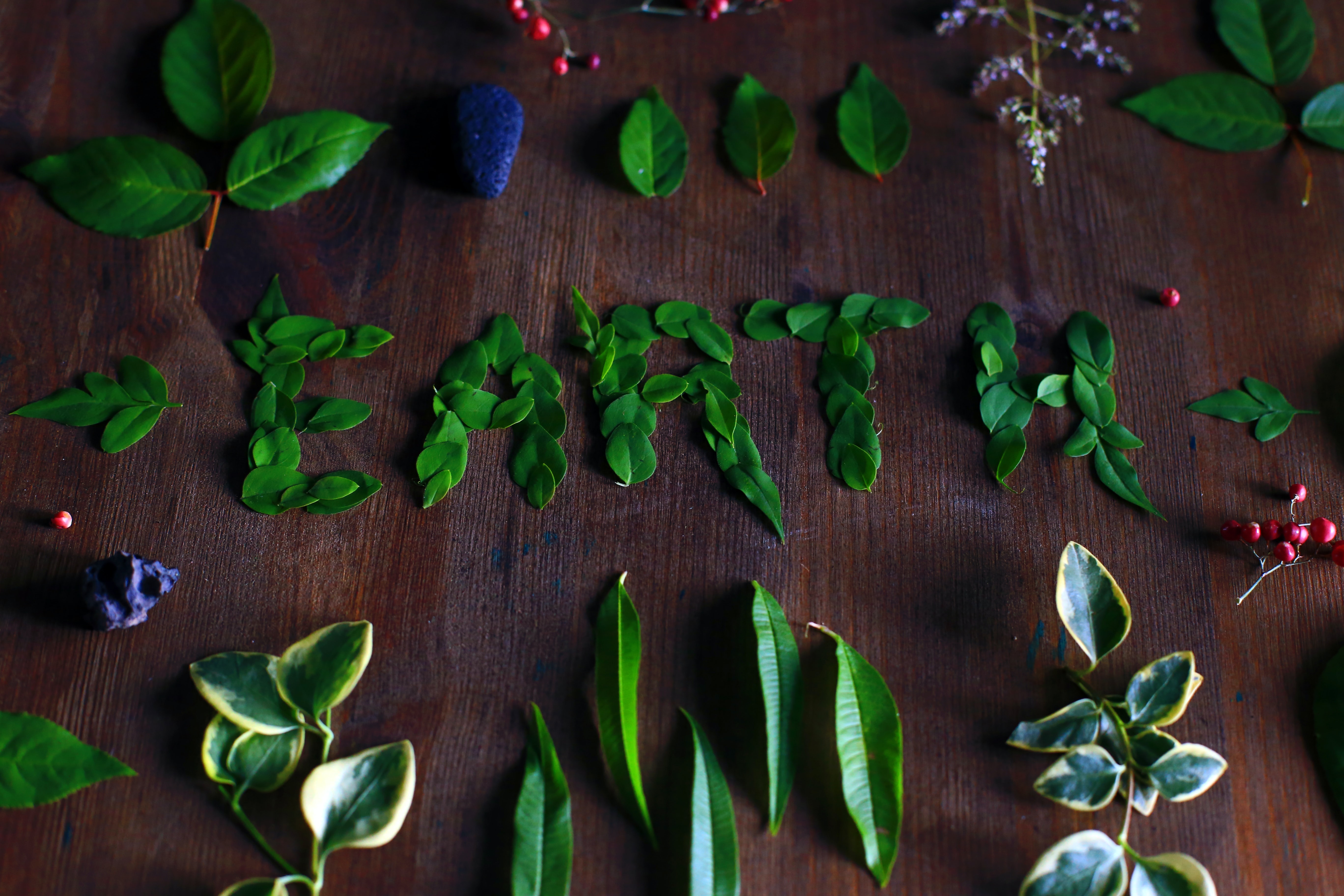 In questa sezione riportiamo alcuni lavori che si interrogano sul legame tra estetica, scienze ed ecologia. (to be completed)
In questa sezione riportiamo alcuni lavori che si interrogano sul legame tra estetica, scienze ed ecologia. (to be completed)
Agudio, E., Boschen, M., Sandoval, L., Çimen, O., & Wächter, C. (Eds.). (2020). Agropoetics Reader. The Institute for Endotic Research Press. https://www.savvy-contemporary.com/site/assets/files/6097/agropoetics-reader.pdf
Critical Art Ensemble. (2003). The molecular invasion. Autonomedia.
Critical Art Ensemble. (2018). Aesthetics, necropolitics, and environmental struggle. Autonomedia.
Bik E. M. (2016). The Hoops, Hopes, and Hypes of Human Microbiome Research. The Yale journal of biology and medicine, 89(3), 363–373.
*Photo by Miriam Espacio on Unsplash